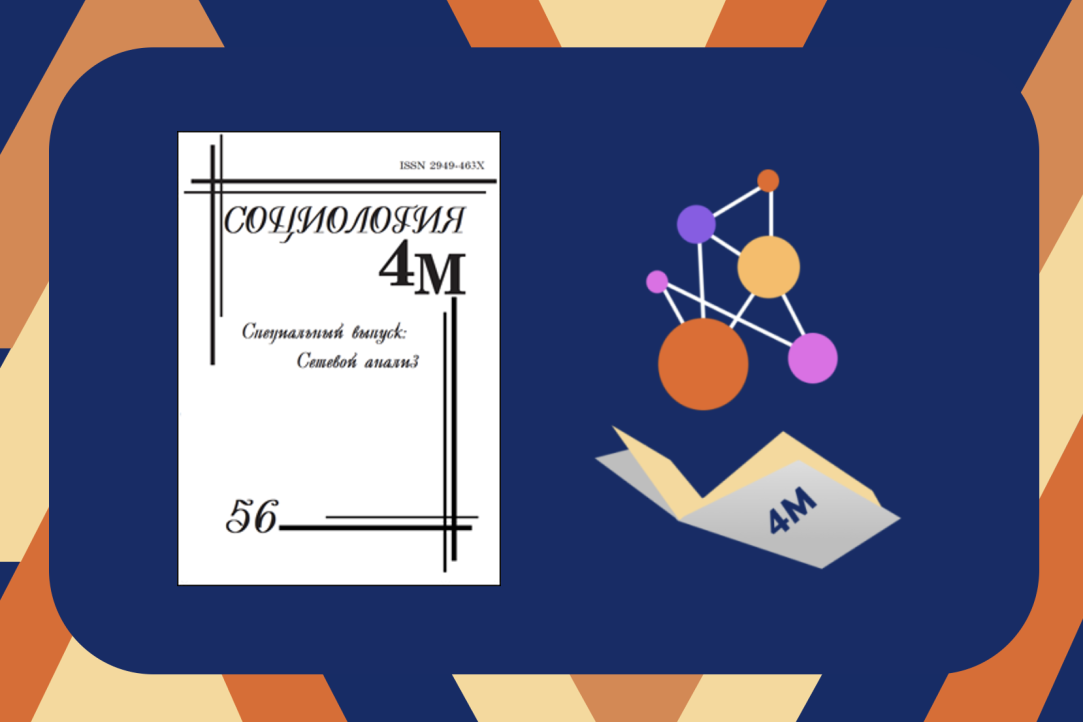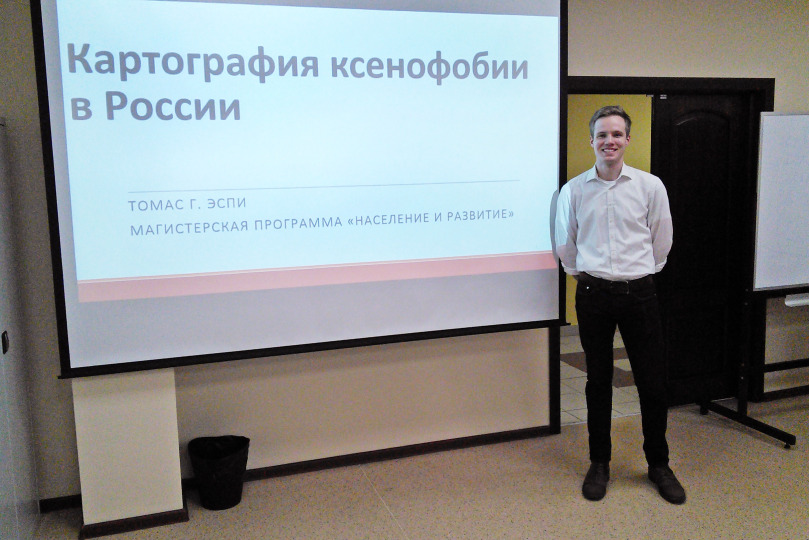
Tag "research projects"




In March 2021 the HSE University and Freie Universität Berlin (FUB) were awarded an institutional partnership grant from the Alexander von Humboldt Foundation to foster cooperation between these two institutions and to involve in it a broader group of younger fellows and doctoral students. On May 27th this project will start with a digital workshop "Varieties of Populism in East and West" (deadline for submission is April 23rd; for more info about the workshop see the link at the end of the news). We interviewed Professor Dr. Katharina Bluhm, director of the Institute for East European Studies at the Freie Universität Berlin, about the goals of this project and prospects of cooperation between the HSE University and the FUB.





On March 15 Alena A. Khaptsova (Junior Research Fellow of International laboratory for Socio-Cultural Research, lecturer of School of Psychology, Faculty of Social Sciences, HSE) took part in the «Culture matters» research seminar with the report on "Russian multiculturalism in the media: the technique of content analysis of the news".
Women who have moved to another part of the country tend to have higher fertility than those who stay in the same community all their lives. Relocation often improves a woman's life circumstances and broadens her choice of marriage partner, thus supporting her reproductive intentions, according to Svetlana Biryukova, Senior Research Fellow of the HSE Center for Studies of Income and Living Standards, and Alla Tyndik, Leading Research Fellow at the RANEPA.

The Russian family has been becoming more demographically heterogeneous over recent years. Some of the families follow the trend of having many children: women more often give birth to a third and fourth child, and the gap between births is decreasing, which makes the evolution of the family faster. At the same time, younger generations are inclined to postpone marriage and having their first child, which leads either to later motherhood or to childlessness. This means that two opposite trends are developing; along with the growing share of ‘Western-type’ families, with postponed parenthood and fewer children, there is a revival of the traditional family with more children, Sergey Zakharov, Deputy Director of the HSE Institute of Demography, reported.
On October 9, the Public Policy Department presented a new book entitled ‘Policy impact of civil society in BRICS countries: best practices influencing policy-making’, which was published by HSE with support from Oxfam under the EU funded project ‘Empowering CSO Networks in an Unequal Multi-Polar World’.
The lower a person's resilience, the greater their alienation from themself, other people, and society. In turn, self-alienation and a lack of personal relationships can cause one to approve of military action as a solution to international conflicts, according to Olga Gulevich, Associate Professor of the HSE School of Psychology, and Andrey Nevruyev, postgraduate student of the same department.
Ambiguous attitudes held by the heirs of Russian moguls may affect the future of the country's big businesses. On one hand, the children of wealthy Russian business owners have an excellent headstart – they are well-educated and generally share their parents' values. Yet on the other hand, they are not likely to become selfless workaholics. Instead, they tend to be more hedonistic than their parents and less inclined to devote their entire life to building the family business. Most Russian business heirs expect to retire early and switch to hobbies, recreation and entertainment in their mid-life. Elena Rozhdestvenskaya, professor of the HSE Faculty of Social Sciences, is the first Russian researcher to study the mindsets of heirs of biggest Russian fortunes.
More than twenty years after the collapse of the socialist bloc, virtually none of the post-communist countries have attained the level of socioeconomic development characteristic of advanced democracies. Likewise, none of the post-communist countries have emerged as successful autocracies with high-quality public institutions, such as those found in Singapore or Oman. Professor Andrei Melville, Dean of the HSE Faculty of Social Sciences, and Mikhail Mironyuk, Associate Professor of the HSE School of Political Science, examine possible reasons why it is so.
Over the past three years, the business climate in Russia has improved for companies with a long planning horizon and for those receiving government support. State-owned companies, however, have been worse off after losing their privileges and facing a level playing field, according to Andrei Yakovlev, director of the HSE Institute for Industrial and Market Studies, Irina Levina, research fellow at the same Institute, and Anastasia Kazun, postgraduate student at the HSE Faculty of Social Sciences.
It is increasingly common for scientists to engage the general public in dialogue and involve people in research rather than communicating with them in a haughty or condescending manner. We are witnessing the hybridization of research institutes: researchers are more actively collaborating with the media, civil society, and the customers for research, HSE Associate Professor Roman Abramov and Senior Lecturer at the Department for the Analysis of Social Institutions Andrei Kozhanov noted in an article.
1
2

